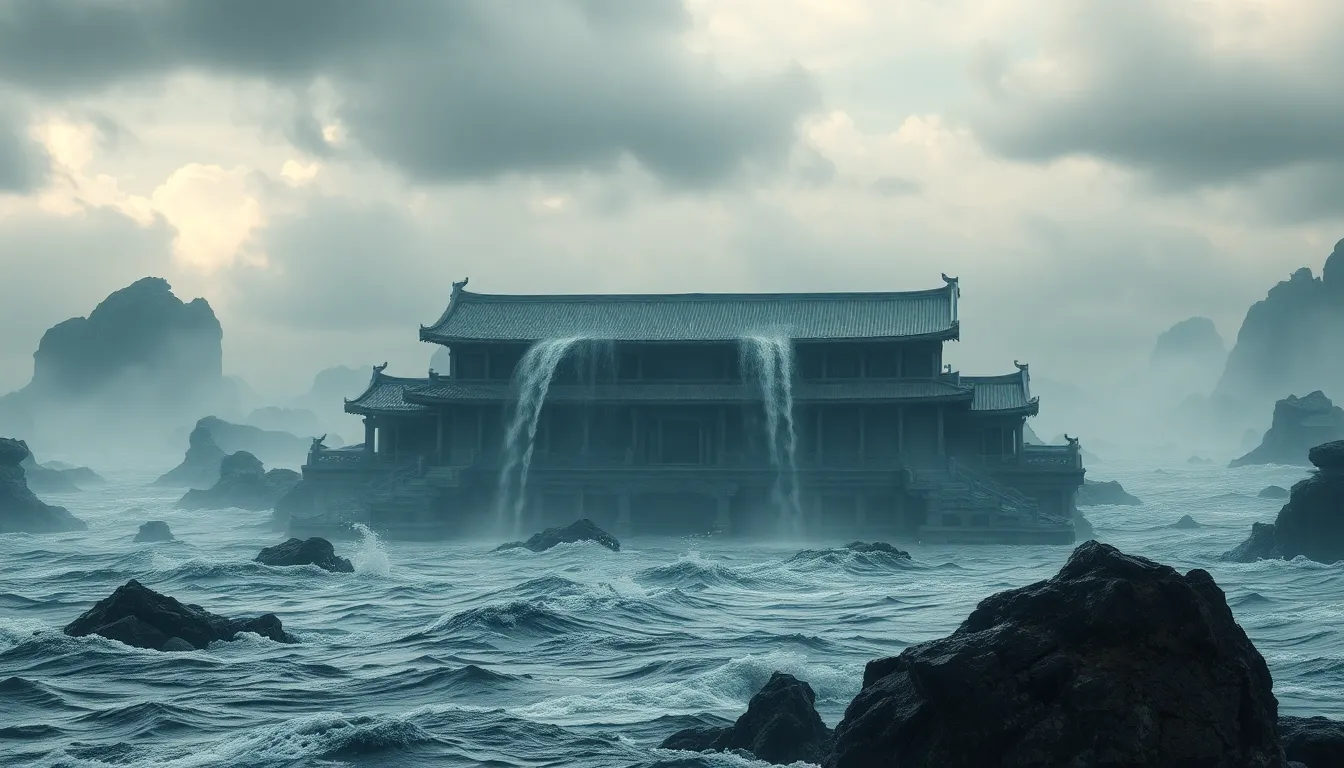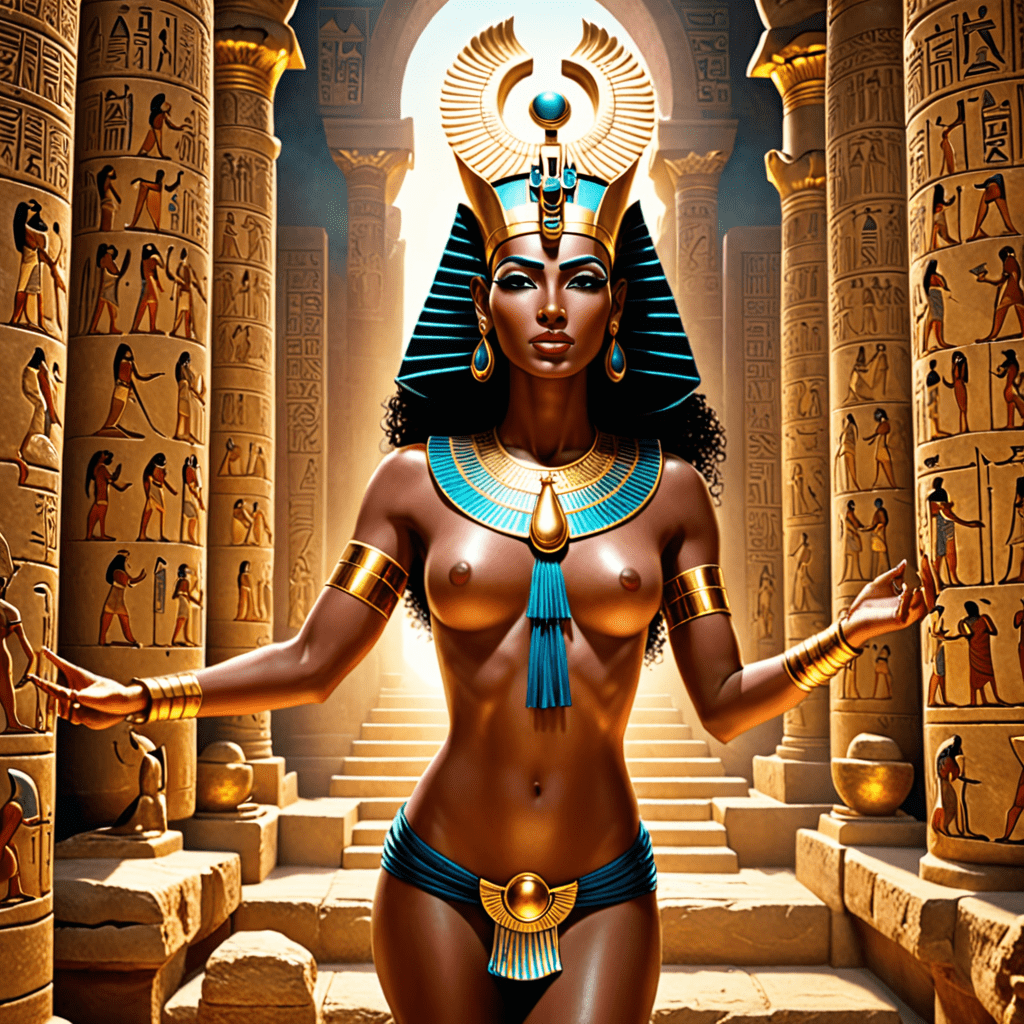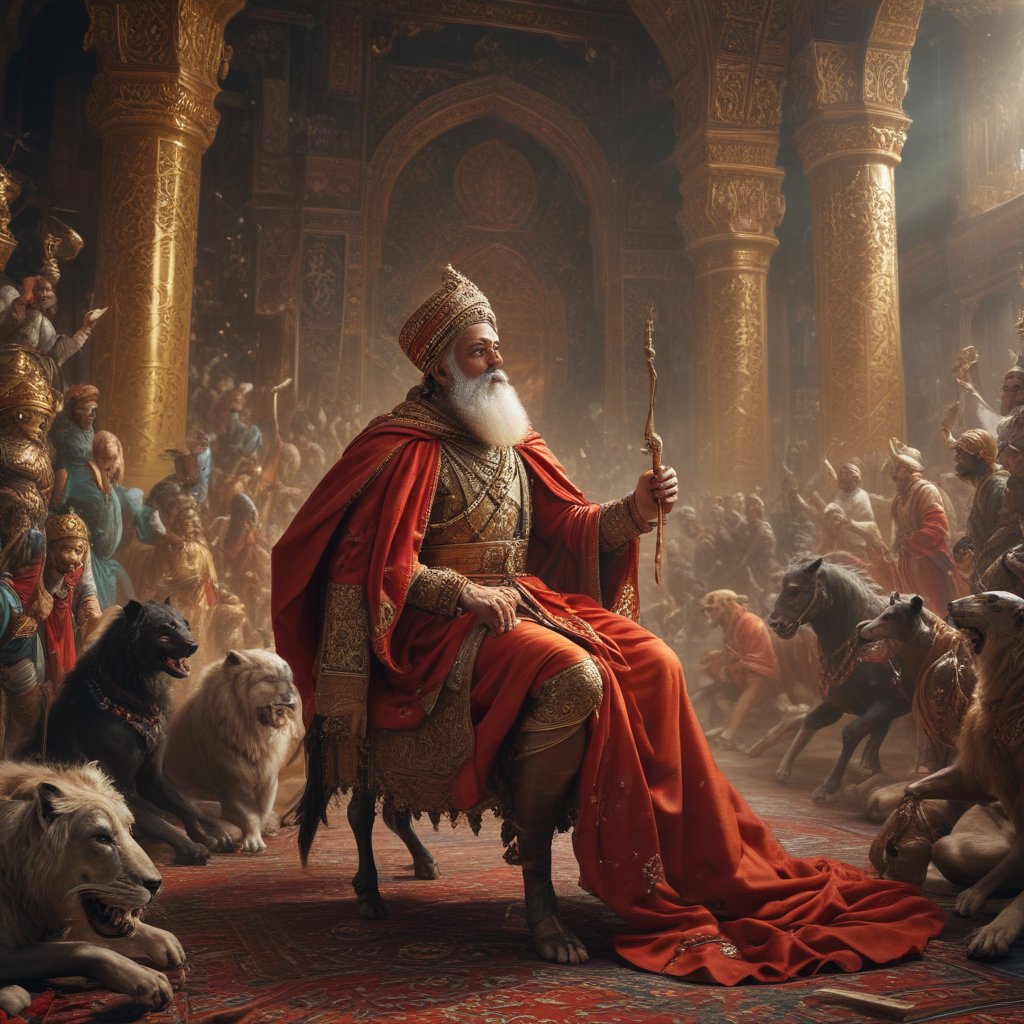Divine Deluges: The Role of Gods in Flood Myths Across Cultures
I. Introduction to Flood Myths
Flood myths are narratives that recount cataclysmic deluges, often sent by deities as a form of judgment or cleansing. These myths hold significant cultural importance, serving as allegories for human experiences and moral lessons. They reflect the shared fears and values of societies, illustrating humanity’s relationship with the divine.
Across diverse civilizations, from the ancient Mesopotamians to contemporary indigenous cultures, the existence of flood myths is strikingly universal. These stories often share core themes but are uniquely shaped by the cultural context in which they arise. This article explores the vital role of gods in these narratives, revealing how divine beings shape the understanding and interpretation of floods.
II. Common Themes in Flood Myths
Flood myths often revolve around several common themes that resonate across cultures:
- Destruction and renewal: Floods symbolize both the destructive power of nature and the possibility of renewal and rebirth, emphasizing a cyclical view of existence.
- Human moral failings and divine retribution: Many myths depict floods as a response to human wickedness, with deities punishing moral transgressions through catastrophic events.
- The symbolism of water and its duality: Water represents both life-giving and life-taking forces, highlighting the paradoxical nature of existence.
III. The Mesopotamian Perspective: The Epic of Gilgamesh
The flood narrative in the Epic of Gilgamesh is one of the earliest recorded stories of a great deluge. In this tale, the god Ea warns Utnapishtim of an impending flood meant to wipe out humanity. Utnapishtim builds a large boat to save himself, his family, and various animals.
In this story, Ea’s foresight represents the theme of divine wisdom and protection, contrasting the destructive intentions of the other gods. Utnapishtim’s survival serves as a testament to divine favor, marking him as a figure of eternal life and wisdom.
IV. The Biblical Account: Noah’s Ark
The flood narrative in the Book of Genesis centers around Noah, who is chosen by God to build an ark and save his family and pairs of every animal species. God’s motivations for the flood are twofold: judgment for the pervasive wickedness of humanity and the establishment of a new covenant.
Noah’s portrayal as a righteous man emphasizes the values of obedience and faithfulness to divine instructions. The flood serves as a fresh start for humanity, reinforcing the idea that adherence to divine will is paramount for survival and redemption.
V. Hindu Traditions: Manu and the Great Flood
In Hindu traditions, the story of Manu and the Matsya Avatar of Vishnu illustrates another flood myth. Manu, warned by the fish incarnation of Vishnu, constructs a boat to save himself, the sages, and seeds of all life. This narrative underscores themes of preservation and divine guidance.
The flood in this context symbolizes a cleansing of the world, with Manu representing dharma, or righteousness, as he follows the guidance of Vishnu. The act of sacrifice, both of Manu and the species he saves, highlights the moral imperative to protect life and uphold cosmic order.
VI. The Indigenous Perspectives: Native American Flood Myths
Native American cultures offer a rich tapestry of flood myths, each with unique interpretations and lessons. Many tribes, such as the Ojibwe and the Lakota, recount tales of floods that reshape the earth and humanity.
In these narratives, the Great Spirit or other divine beings often play pivotal roles, sending floods to cleanse the earth or as a test of character for the chosen survivors. The morals derived from these stories emphasize harmony with nature, respect for the divine, and the interconnectedness of all life.
VII. The Greek Mythology: Deucalion and Pyrrha
In Greek mythology, the flood myth of Deucalion and Pyrrha depicts a deluge sent by Zeus to eliminate the corrupt human race. Deucalion, the son of Prometheus, is forewarned and constructs an ark to survive the flood.
This narrative highlights the themes of hope and regeneration, as Deucalion and Pyrrha repopulate the earth after the waters recede. Their story reflects the belief in divine mercy and the potential for humanity to start anew, guided by the lessons of the past.
VIII. African Flood Myths: The Role of Trickster Deities
Various African cultures also possess flood myths, often involving trickster deities such as Anansi. These stories typically explore themes of chaos and order, with floods representing both destruction and the potential for new beginnings.
In these narratives, trickster gods often challenge the status quo, using cleverness to navigate the challenges posed by floods. The lessons derived from these stories emphasize resilience, adaptability, and the importance of balance in life.
IX. Comparative Analysis: Similarities and Differences
Examining flood myths across cultures reveals both remarkable similarities and distinct differences:
- Recurring motifs: Themes of destruction, moral lessons, and the cyclical nature of existence are common across various cultures.
- Divine intervention: In many myths, gods play crucial roles, either as agents of destruction or as protectors of humanity.
- Cultural interpretations: While the fundamental elements may be similar, the specifics of each myth reflect the unique values, beliefs, and environmental contexts of the cultures they originate from.
Ultimately, flood myths reveal profound insights into the human condition, illustrating how societies grapple with the forces of nature and the divine. They serve as reminders of our vulnerabilities and the enduring quest for meaning in the face of chaos.




